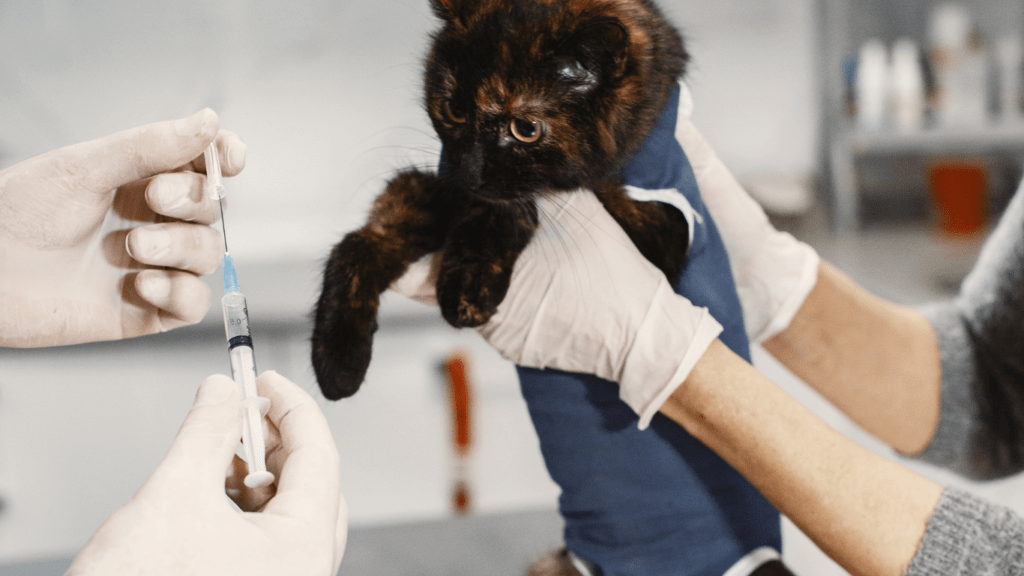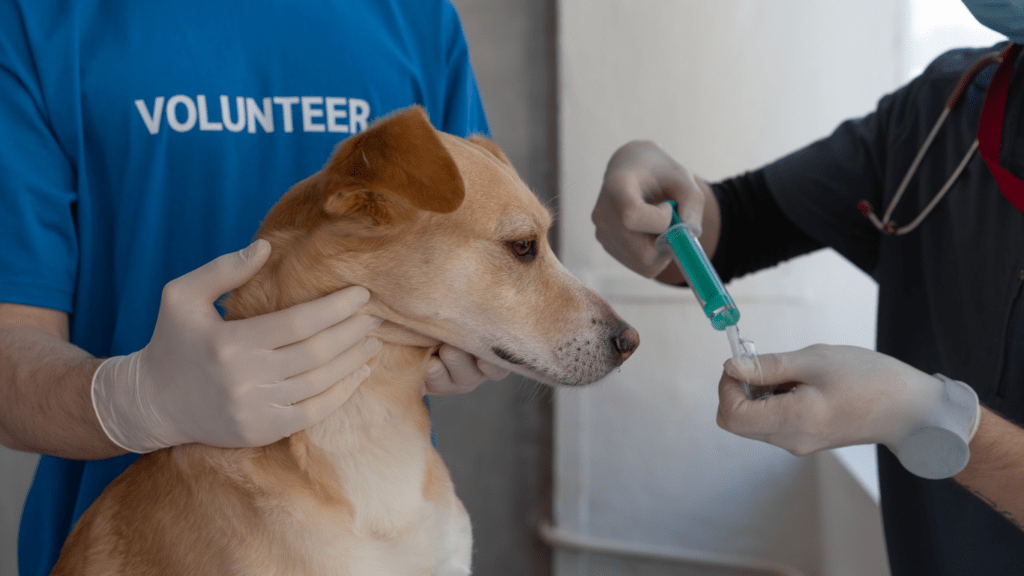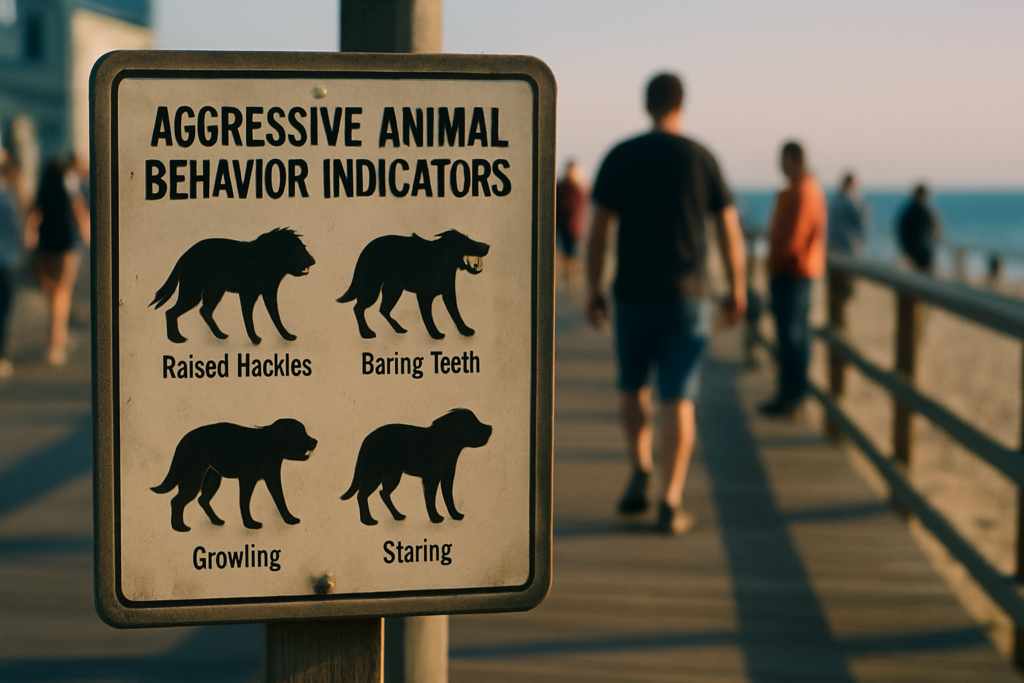Understanding Your Pet’s Vaccination Schedule
Proper vaccination can prevent many diseases in pets. Vaccines stimulate the immune system to fight diseases without causing the illness.
Core Vaccines
Core vaccines are essential for all pets due to the risk and severity of diseases they prevent.
These vaccines include:
- Dogs: Canine Parvovirus, Canine Distemper, Canine Adenovirus, Rabies
- Cats: Feline Leukemia, Feline Viral Rhinotracheitis, Feline Calicivirus, Rabies
These vaccines are crucial because they prevent severe, often fatal diseases.
Non-Core Vaccines
Non-core vaccines vary based on the pet’s lifestyle and location.
These include:
- Dogs: Bordetella, Canine Influenza, Leptospirosis, Lyme Disease
- Cats: Chlamydophila Felis, Bordetella Bronchiseptica
Discuss non-core vaccines with your vet to determine if your pet needs them.
Puppy and Kitten Vaccination Schedule
Young animals need vaccines to build initial immunity. Puppies and kittens usually follow a strict schedule:
| Age | Vaccination |
|---|---|
| 6-8 weeks | Distemper, Parvovirus (Dogs), Rhinotracheitis, Calicivirus (Cats) |
| 10-12 weeks | Hepatitis, Parainfluenza (Dogs), Leukemia (Cats) |
| 14-16 weeks | Rabies (Both) |
Puppies and kittens require boosters every 3-4 weeks until 16 weeks old.
Adult Pet Vaccination Schedule
Adults follow a different schedule from young animals. Annual or triennial boosters maintain immunity:
| Frequency | Vaccination |
|---|---|
| Annually | Bordetella, Lyme Disease (Dogs), Leukemia (Cats) |
| Triennially | Rabies (Both), Distemper, Parvovirus (Dogs), Rhinotracheitis, Calicivirus (Cats) |
Maintaining this schedule ensures long-term health.
Special Considerations
Certain factors influence the vaccination schedule:
- Health Status: Pets with chronic diseases might need a customized plan.
- Environment: Pets in high-risk areas may require additional vaccines.
- Travel: If traveling internationally, check for specific vaccination requirements.
Importance of Vaccinations for Pets

Vaccinations play a critical role in safeguarding your pet’s health. They help prevent numerous infectious diseases, ensuring your pet’s longevity and well-being.
Benefits of Vaccinating Your Pet
Vaccines protect against contagious diseases like Canine Parvovirus and Rabies in dogs or Feline Leukemia in cats. They minimize the spread of these diseases within pet populations and to humans.
Healthy pets reduce healthcare costs by avoiding expensive treatments for preventable diseases. Regular vaccinations foster stronger immunity, ensuring your pet withstands potential infections.
Risks of Not Vaccinating
Unvaccinated pets face higher risks of contracting severe, potentially life-threatening diseases. They can also transmit diseases to other animals and humans.
Treating these infections often incurs significant costs and emotional stress. Mortality rates increase substantially when preventable diseases strike unvaccinated pets, undermining their overall quality of life.
Key Vaccines for Different Pets
Pets require vaccines to protect against diseases. These ensure their well-being and longevity.
Dogs: Core and Non-core Vaccines
Dogs need several vaccines to maintain their health. Core vaccines include Canine Parvovirus, Distemper, Canine Hepatitis, and Rabies. Veterinarians recommend these for all dogs due to their high risk and severity.
Non-core vaccines, given based on the dog’s lifestyle, include Bordetella, Lyme Disease, and Leptospirosis. Dogs frequently in contact with other animals or outdoors benefit from these additional protections.
Cats: Essential Vaccinations
Cats have specific vaccination needs. Core vaccines include Feline Viral Rhinotracheitis, Calicivirus, Panleukopenia (FVRCP), and Rabies. These protect against common, serious diseases.
Optional vaccines, for cats with higher exposure risks, include Feline Leukemia Virus (FeLV), Feline Immunodeficiency Virus (FIV), and Chlamydia. Indoor cats may only need core vaccines, while outdoor or multi-cat households might require others.
Exotic Pets: Special Considerations
Exotic pets like rabbits, ferrets, and birds have unique vaccine requirements. Rabbits often receive vaccines for Rabbit Hemorrhagic Disease (RHD) and Myxomatosis, particularly in regions prone to outbreaks.
Ferrets commonly need Canine Distemper and Rabies vaccines. Birds sometimes require vaccinations for Avian Polyomavirus and Pacheco’s Disease, depending on their environment. Consulting an exotic vet helps determine the best vaccination plan for these pets.
Vaccination Schedule for Pets
A well-planned vaccination schedule ensures that pets remain healthy throughout their lives. Pets require different vaccines at various stages of their lives to maintain strong immunity.
Puppies and Kittens: The First Year
During the first year, puppies and kittens need several core vaccines. Puppies typically require vaccines for Canine Parvovirus, Distemper, Canine Hepatitis, and Rabies.
Kittens often need vaccinations for Feline Viral Rhinotracheitis, Calicivirus, Panleukopenia, and Rabies. Both puppies and kittens start their vaccines at about 6-8 weeks old, with booster shots every 3-4 weeks until they are 16 weeks old.
During this period, non-core vaccines like Bordetella for puppies and Feline Leukemia for kittens may be considered based on their lifestyle and risk factors.
Adult Pets: Maintaining Immunity
Once pets transition from their first year to adulthood, maintaining immunity through regular vaccinations is crucial. Adult dogs typically receive boosters for core vaccines every 1-3 years, depending on veterinary guidance.
Similarly, adult cats usually need their core vaccine boosters every 1-3 years. Non-core vaccines might also require periodic boosting based on your vet’s recommendations and your pet’s specific exposure risks.
Senior Pets: Special Needs
Senior pets often have different vaccination needs due to their age and health status. As pets age, their immune systems may weaken, making them more susceptible to diseases.
While core vaccines remain essential, the frequency might change based on the individual pet’s health. Regular vet check-ups become even more critical to assess any necessary adjustments in their vaccination schedule.
Also, some non-core vaccines might be more important if the senior pet’s lifestyle includes increased exposure to certain diseases.
By following a structured vaccination schedule and consulting with your vet, pet owners can ensure their pets stay healthy and protected against preventable diseases throughout their lives.
Managing Side Effects and Reactions
Understanding how to manage your pet’s side effects and reactions to vaccinations helps ensure their safety and comfort. Knowing what to expect can make the process smoother and less stressful for both of you.
Common Reactions to Vaccinations
After vaccination, pets often show minor reactions. These reactions include swelling at the injection site, mild fever, reduced appetite, and sluggishness. Most reactions resolve within 24-48 hours. For example, a dog might be less energetic or a cat could avoid food temporarily.
When to Contact Your Vet
Contact your vet if your pet shows severe or prolonged reactions. Symptoms, such as persistent vomiting or diarrhea, facial swelling, difficulty breathing, or hives, indicate an adverse reaction. Immediate medical attention ensures your pet’s well-being and addresses any serious concerns promptly.


